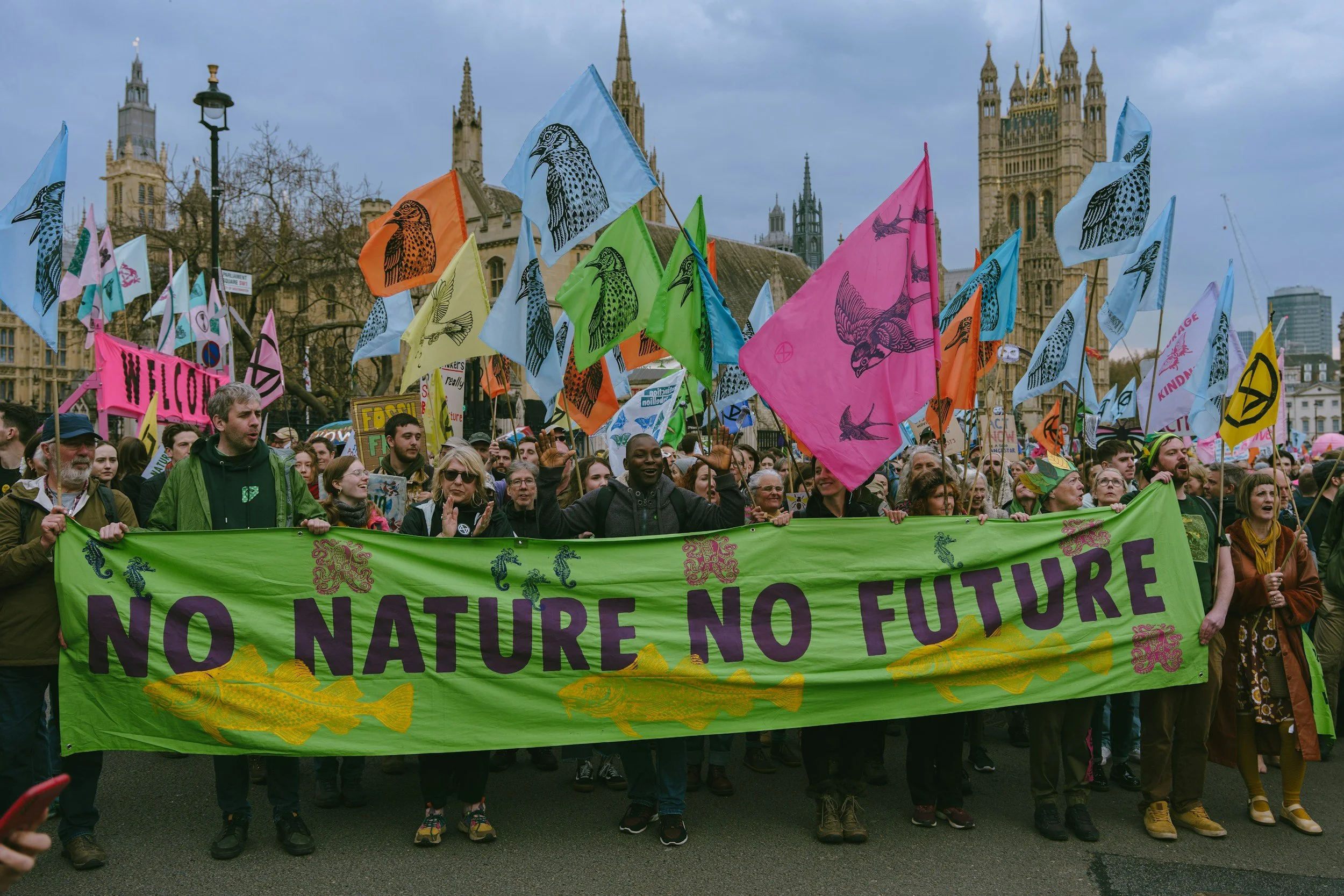What is an injunction and how are they used against climate defenders?
What is an injunction?
An injunction is a court order that directs a person to do something or to stop doing something.
Why is an injunction used?
Injunctions are used for a variety of civil situations, including within the home, in communities, and businesses. Injunctions can be temporary or permanent, and they were originally designed to stop specific behaviors by specific individuals. For example, some of the most well-known types of injunctions are restraining orders and standard private property trespassing orders.
However, in recent years, the scope of who can file an injunction and for what reasons, has expanded, particularly in the United Kingdom. Today, the law is being used to stop and silence larger groups of protestors near public or fossil fuel infrastructure, no matter if their identity is known or unknown.
And in some cases, it doesn’t even matter what specific action they have taken to be in violation of an injunction.
Who can file an injunction in the UK?
Companies file injunctions by enjoining “persons unknown”, or a person who is not identifiable at the time the order is granted. “Persons unknown” injunctions act as a catch-all for large swaths of people who are expressing their views and assembling.
For example, a court recently granted Heathrow Airport an injunction against “persons unknown,” after two protestors sprayed orange paint on private jets at Stansted Airport in London. Heathrow’s injunction is now referred to as the “anti-protest injunction” because it prohibits any individual connected with any “environmental campaign” from entering the airport’s property. After the injunction was in place, Shell announced their plans to hold their 2025 Annual General Meeting (AGM) at Heathrow's Hilton Hotel.
How often are injunctions used against climate defenders in the UK?
Global Climate Legal Defense and our partners in the United Kingdom have seen a demonstrable rise in the use of injunctions to suppress or silence the climate movement over the last few years. Data gathered by the BBC last year found that more than 400 demonstrators are named in court orders restricting protest at more than 1,200 locations. These injunctions also apply to “persons unknown.”
How did the legal scope of who can file an injunction expand?
The change is attributed to several things, including new laws and a growing tendency by local authorities to collude with companies who want to file injunctions. But above all, it's about the accumulation of bad case law – the body of judicial decisions and precedents over time – rather than an explicit policy change made by policymakers.
Many injunction proceedings against climate defenders go undefended because of the high legal costs when hit with an injunction. Wealthy corporations and private interests understand climate defenders do not often have large pocketbooks, and are able to file many cases to bend case law in their favor.
Some climate groups in the UK have worked vigorously to address this gap. But given the practical challenges involved in monitoring injunction applications – not to mention finding the money to cover the huge legal costs involved in resisting their use – the result has been a significant increase in the circumstances in which injunctions can be secured against protesters. Experts have recently questioned whether this is a fair use of UK injunction law, or if private interests are wielding how the public’s law is being interpreted and applied.
What are the common penalties for breaching injunctions in the UK?
The penalties depend on the action taken and whether it breaks the law.
If a climate defender engages in non-violent civil disobedience, such as obstructing the highway or painting on private property, any crimes committed will be dealt with in a criminal court. But if an injunction is also in place and it is breached, protesters may also be prosecuted for contempt of court – meaning a further financial penalty or even prison sentence. This can be considered a form of “double jeopardy” because they will have to pay twice for a singular act.
The most insidious impact of injunctions, however, lies not so much with the outcome than with the litigation process. Injunctions have been easy to weaponise against activists in the UK for the same reason that Strategic Lawsuits Against Public Participation (SLAPPs) have become such a problem in the country: the astronomical cost of legal fees and the ability to force those costs on defendants.
Are injunctions against climate defenders being filed more in Europe overall, or is this just happening in the UK?
The rise in injunctions against climate defenders is currently unique to the UK, and part of a broader landscape of increasing penalties on protest and free speech in the country.
Many European countries have substantive legal and procedural protections against widening the scope of who can file an injunction and for what purposes. In the Netherlands, for example, there are several known cases that were overturned on appeal because the country has protections in place that integrate the European Convention on Human Rights’ Article 10 (Freedom of Expression) and Article 11 (Freedom of Assembly and Association).
What can be done to slow the rate of injunctions down and regain the climate movement’s freedom of expression and assembly in the UK?
Global Climate Legal Defense recognizes that we cannot be purely defensive in holding the line. Given that opponents are changing laws and moving the goalpost around the scope of injunctions, we need to respond.
In the past year, CliDef has been pushing back and supporting cases that develop case law, so that we can move the law towards justice and protect the freedom of expression and assembly in the UK – and beyond.

